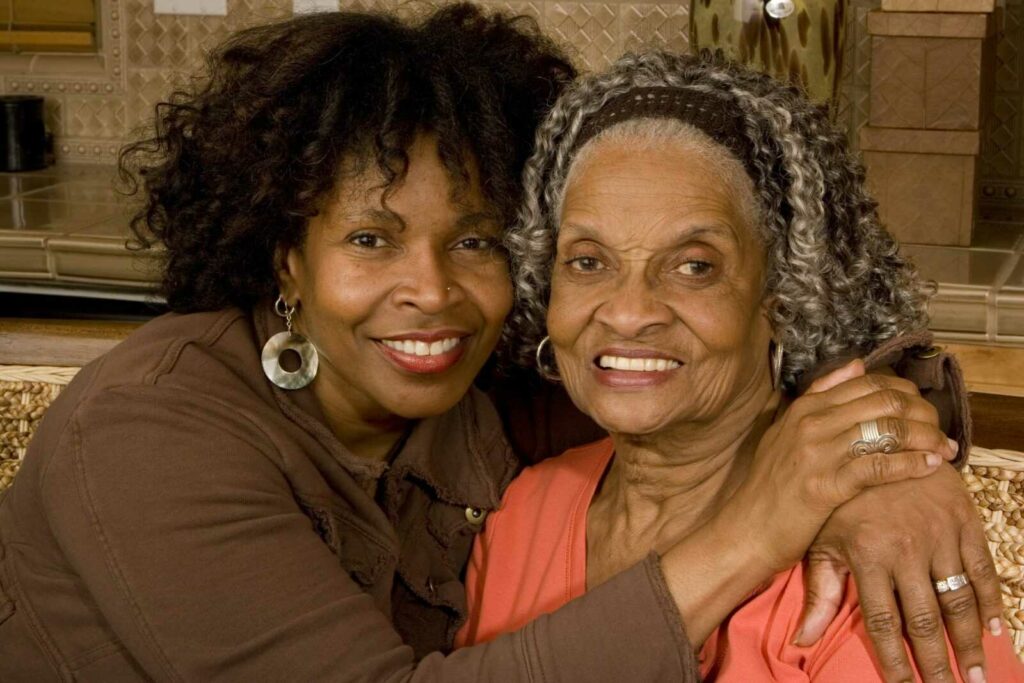Here are five signs that your Mom needs a caregiver. Raising your awareness of them can help you respond and provide needed support.
When you’re visiting older family members, you have a chance to judge how they’re doing in terms of health, safety, and quality of life. AARP’s recent article, “5 Signs Your Loved One May Need Caregiving Support,” advises us that any of the following five red flags may indicate that your parent needs help.
- Falls and safety. Look for things like unsafe indoor or outdoor stairs, especially without railings or poor lighting, along with loose rugs, clutter, or a laundry room that makes your mom or dad carry laundry baskets up and downstairs. You should evaluate fall hazards with a certified aging-in-place specialist (CAPS), an aging life care specialist, or a physical or occupational therapist. They can help evaluate your parent’s needs, abilities, and the home environment. Consider installing safety measures, such as ramps, handrails on both sides of stairs, grab bars in the bathroom, or a walk-in shower.
- Unfinished business. If you see a lot of unopened mail and unpaid bills, or key financial, home, or legal documents that haven’t been addressed, your mom may be cognitively, physically, or emotionally unable to handle them, and she may need a caregiver. You may want to help your mother simplify her affairs or engage a financial manager. You can also volunteer to assist with the more complicated matters while she continues handling day-to-day household and personal finances. You should also be sure your parent has advanced directives and other legal documents in place so you are able to help manage her affairs in an emergency.
- Auto accidents and moving violations. As a young attorney, a grandparent told me of several accidents and wanted me to confirm that she was not at fault. After listening to the description, she was clearly at fault, but she didn’t think so. I missed that as a sign of her dementia, which was clear in hindsight. If you see multiple accidents—even minor fender benders—or several warnings or citations, scrapes, or dents on the car, it’s time to discuss driving. You can ride along and observe any health issues causing problems like vision, hearing, or cognitive changes. You can suggest that he refresh his driving skills by taking a driver safety course, or if it’s time to stop driving, give him other viable transportation options.
- Isolation. Does your mom appear to be disconnected from friends, family, and community? If her support system seems to be deteriorating, her physical and mental well-being are at risk. Discover with whom she regularly interacts. Ask if she feels lonely. Look for some activities she’d enjoy and help make arrangements for ongoing participation and transportation. Regular phone calls can help her connect, as well as using technology, including video chat, online communities, and social media.
- A change in appearance. If you notice a change in your mom’s appearance, like a big gain or loss of weight, wearing the same clothes every day, or lack of personal hygiene, or if she appears sad, anxious, or distressed, or has sleep issues—something is not right. Propose a complete medical and psychological evaluation to determine what’s normal for her because there may be several reasons for these changes. Depression or anxiety may call for treatment.
Review her medications with a pharmacist, and set up a pill organizer for her. Find out how she’s making or receiving meals. If appropriate, arrange for home-delivered meals, housekeeping, medication management, and laundry assistance. Consider other living alternatives, such as moving in with a child or to a continuing care community.
Tackle conversations that Mom needs a caregiver with love, concern, and a supportive attitude. Hopefully, “Caregiver” is plural and varied. Coordinate with family members and try to strengthen the team of support from all your available members who are able and willing to contribute.
Your objective is to help her remain as independent as possible, for as long as possible.
Reference: AARP (December 12, 2019) “5 Signs Your Loved One May Need Caregiving Support”


